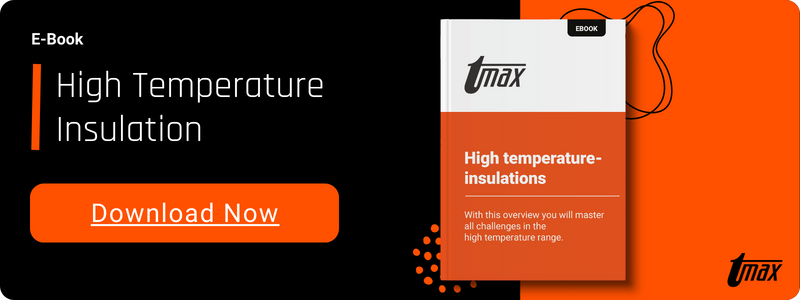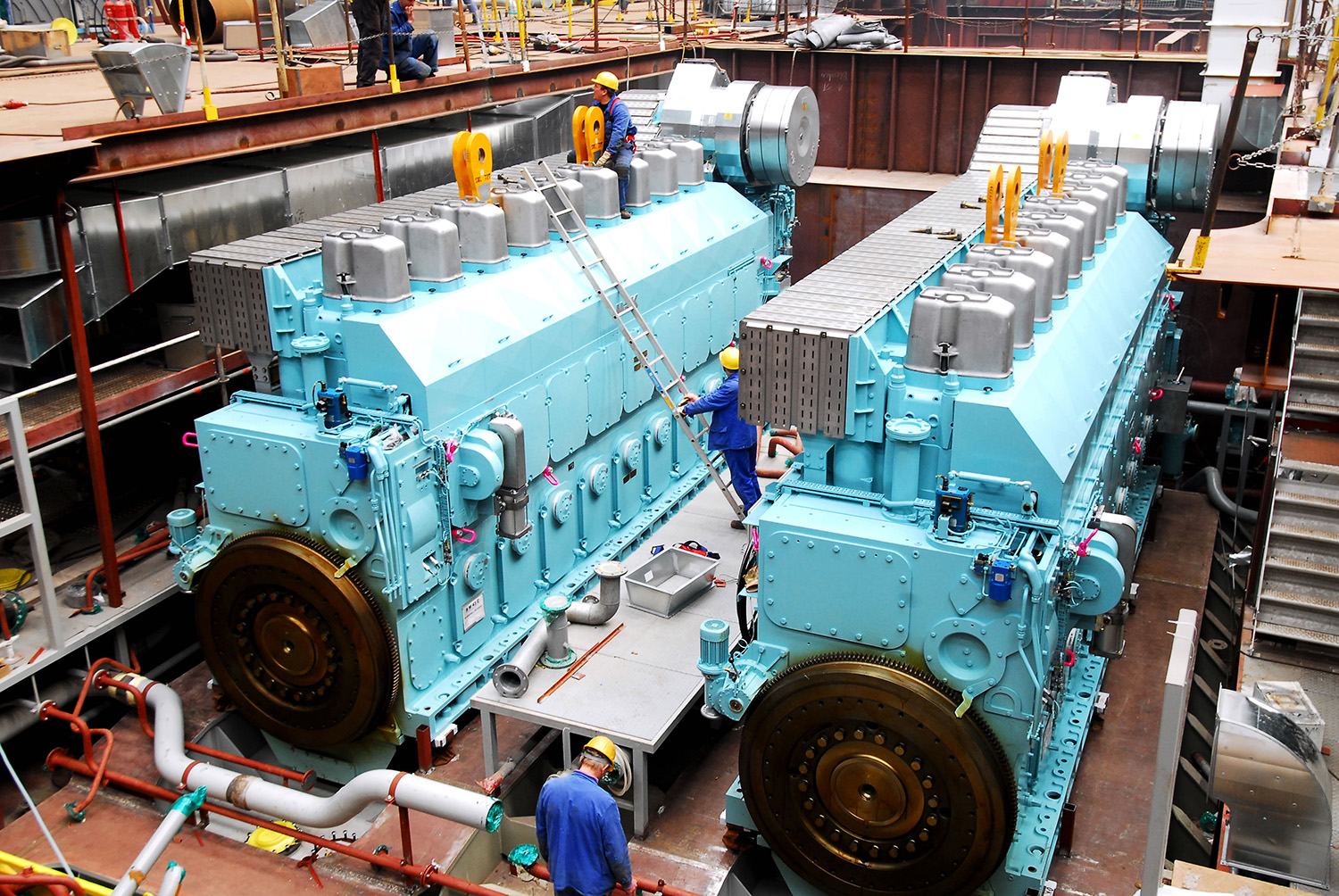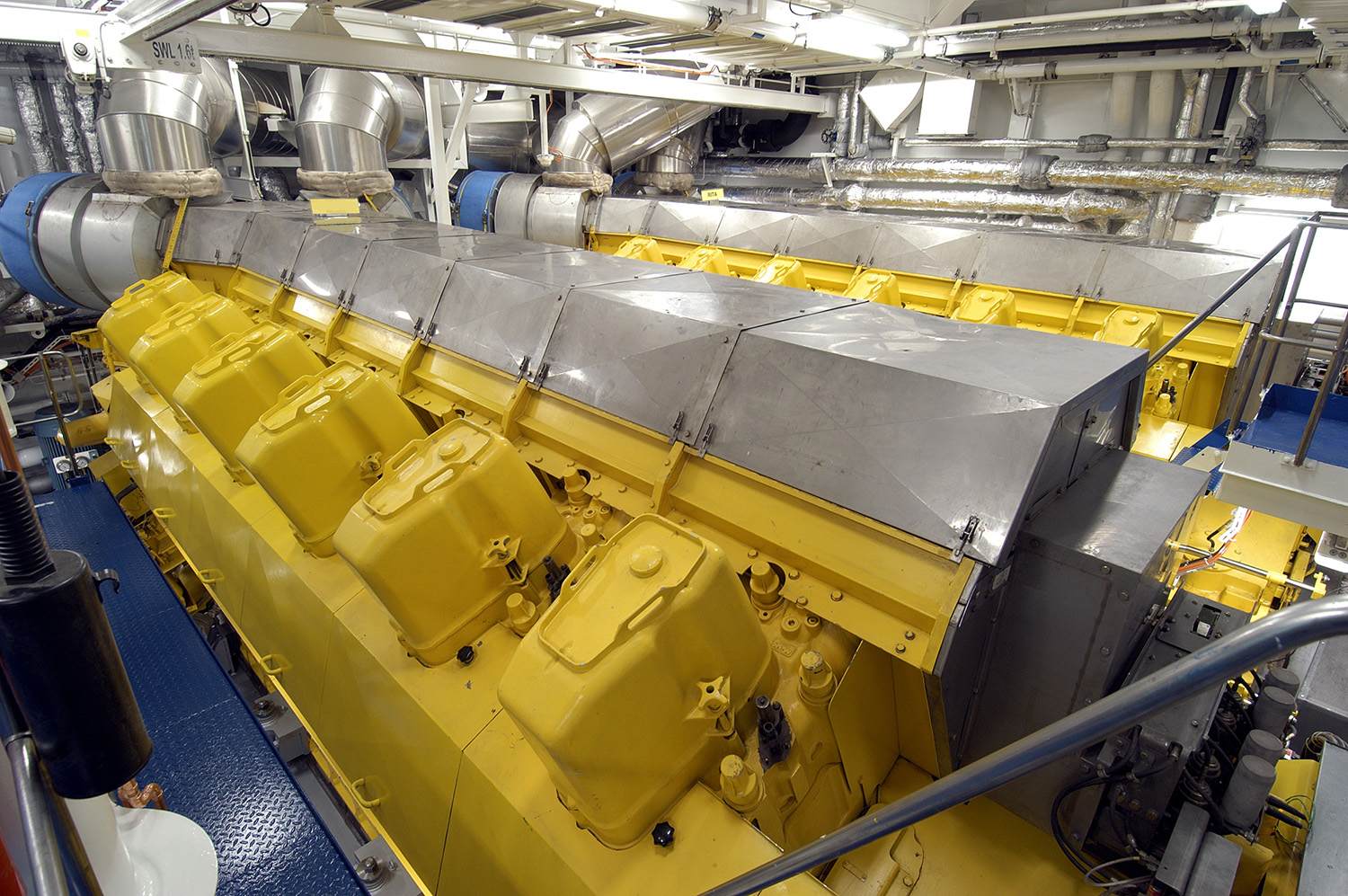Correct fire protection in the engine compartments of ships is indispensable. Not only to safeguard the well-being of people and machinery, but also to comply with SOLAS regulations and to preserve your shipping licence.
Fire risks in shipping
Whether cruiser, cargo ship or sporting yacht, they are all affected by the risk of fire on the high seas. The main cause of this catastrophic situation is due to fires in the engine compartment. In the engine compartment, the two factors of hot surfaces, up to 750 degrees, and flammable materials collide. This combination is, literally, a fire hazard. If flammable liquids or gases come into contact with hot surfaces, a fire starts, which can have devastating consequences on the high seas. In addition, worn components, such as outdated insulation, favour leakage.
Such a leak can lead to the escape of hydraulic oils, which ignite at a surface temperature of just 250 degrees, greatly increasing the risk of a fire starting.
A fire on a ship not only spreads quickly, but is also difficult to extinguish. Firefighting is complicated by factors such as narrow escape routes, lack of outside assistance and lots of flammable and fire-causing material. Fire on the high seas quickly leads to serious danger to people, machinery and the environment. Once a fire has occurred, firefighting is a delicate undertaking. When equipping a ship, fire protection should therefore be perfected as a preventive measure in order to minimise the fire risks and prevent such an acutely dangerous situation from occurring.

Fire Safety Regulations & SOLAS
In 1913, a convention was adopted regarding safety and protection on the high seas. This decision was linked to the sinking of the RMS Titanic and the tragedy that accompanied this shipwreck. New standards for the safety of human life on the high seas had to be created.
A continuation of this convention is the "International Convention for the Safety of Life at Sea", which is a UN convention held in 1974, in which a new set of rules for the safety of the navy was laid down. The safety standards listed here cover factors such as the construction, equipment and operation of merchant ships. The SOLAS standard applies in international waters and to all ships with a gross tonnage over 500, as well as passenger ships with over 36 passengers.
The fire safety regulations are also laid down and prescribed in it. These were revised again in July 2002 and, in addition to stricter requirements for the components and materials used, also demand that no surface of a component used may exceed the 220 degree mark.
If the SOLAS criteria are not adhered to, one risks not only the shipping licence but also the well-being of people and life on board. Accordingly, the temperature mark of 220 degrees must be maintained at all costs in order to minimise the risk of fire and maximise the safety potential.

Fig.: SOLAS-compliant metallic insulation with special focus on contact protection in the transport sector.
How do I keep temperatures low successfully?
The correct question at this point is: how do I minimise the risk of fire in the engine compartment of my vessel? As already stated, the greatest risk factor is that of high temperatures.
It is therefore necessary to prevent overheating and reduce temperatures. This is, after all, also required by the SOLAS guidelines.
This is where the insulation component comes in. This is indispensable for the prevention of hot spots. A solid and well-adapted metallic insulation helps to control the temperature and thus enables effective fire protection. This is because fire protection is increased at low temperatures. In addition, a low temperature in the engine compartment contributes to the efficiency and safety of the machine used in marine applications.
The SOLAS standard requires temperatures below 220 degrees. A metallic insulation of tmax is even able to show the temperature on the fairing down to 60 degrees. We manage temperature reduction of up to 1000 degrees. This can be realised very efficiently due to a precisely fitting insulation as a fire protection solution.
Our engineering know-how, combined with our specialisation in developing tailor-made insulation solutions based on customer requirements, makes us a pioneer in thermal management through insulation protection. Depending on the requirements, there is a choice between metallic insulation or textile insulation.
We have decades of expertise in this field and have been the market leader for SOLAS-compliant insulation for 45 years.
Not only do the insulations stand out due to the reduction of fire risks, but also due to the fulfilment of exhaust gas standards, a reduction in noise and the creation of perfect protection against contact.
In addition to fire risk minimisation, these factors are further important tmax insulation properties that are indispensable for increasing the efficiency of your ship. Fire safety is, of course, a top priority.
|

SOLAS
|

Fire protection
|

Optimum contact protection
|

Fulfillment of exhaust emission standards
|

Soundproofing
|

Fig.: SOLAS-compliant exhaust gas fairing of a large marine engine.
Fire safety is of utmost importance on the high seas.
In the event of a fire on the high seas, a quick escape is usually impossible and help from outside cannot be expected. For this reason, the engine, which is the greatest source of fire due to high temperatures and highly flammable liquids, must be solidly insulated.
Such high-temperature insulation prevents fires by keeping the temperature low and thus eliminating the risk of splash fires. Maximum safety and precise insulation go hand in hand in a marine engine and are indispensable for limiting the risk of hazards.
Prioritise the safety of people and machinery. Increase the reliability of your vessel. Comply with IMO exhaust emission standards and SOLAS guidelines. Fit your ship's engine with insulation.
Protect yourself from thermal risks on the high seas.
